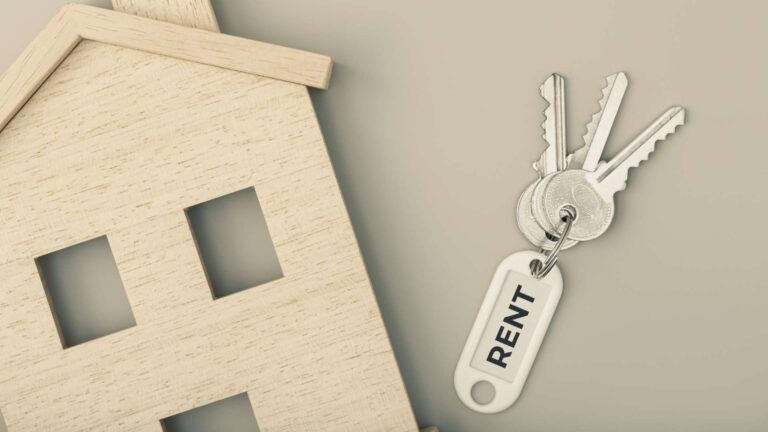Table of Contents
The Rise of House Hacking in 2025
When sky-high rents, expensive mortgages, and financial uncertainty loom at every corner of America’s homescape, one concept has gained extraordinary traction among young buyers and cost-conscious families alike: house hacking. The strategy is simple but powerful—buy a home, live in part of it, and rent out the rest.
However, not everyone is in a position to buy. For millions, the decision boils down to two options: should you stretch to buy a property and house hack by renting out rooms, or should you keep renting elsewhere, preserving flexibility and liquidity?
Renting rooms as a house hacker can offset your mortgage, accelerate wealth building, and provide tax benefits, but it also comes with risks, responsibilities, and lifestyle trade-offs. Renting elsewhere keeps life simple and mobile, but it offers no equity growth and exposes you to rent hikes.
This guide explores both sides of the equation in detail, so you can decide whether house hacking is your gateway to financial independence or whether renting still makes more sense for your life in 2025.
What House Hacking Really Means
House hacking isn’t just a buzzword. It’s a structured financial strategy. At its core, you purchase a property larger than your own housing needs, then rent part. The rent payments go toward your mortgage, utilities, and other expenses. Over time, this reduces your cost of living and accelerates wealth growth.
Common house hacking setups include:
- Single-Family Home with Spare Rooms: Live in one bedroom, rent out others to roommates.
- Duplex/Triplex/Quadplex: Occupy one unit while leasing the others.
- ADU (Accessory Dwelling Unit): Build or use a basement, garage apartment, or in-law suite for rental.
- Short-Term Rentals: Use platforms like Airbnb for flexible, higher nightly income (though more volatile).
While the math is appealing, house hacking also turns you into a landlord, roommate, and property manager all at once, a role not everyone wants.
Read related blog: How to Calculate Your Break-Even Point When Buying a House
The Financial Upside of Renting Out Rooms
The clearest advantage of house hacking is financial leverage. Instead of paying your entire mortgage out of pocket, you spread the burden across tenants.
Mortgage Offsets:
- Suppose you buy a $400,000 home with a $2,800 monthly mortgage.
- By renting out two rooms at $900 each, your effective cost drops to just $1,000.
- Over 10 years, that’s hundreds of thousands saved and redirected into equity, retirement savings, or other investments.
Wealth Acceleration:
- Rent payments help you pay down principal faster.
- Home values appreciate, compounding your gains.
- In many markets, a well-structured house hack lets you live “rent-free.”
Tax Advantages:
- A portion of property expenses (mortgage interest, utilities, depreciation) can be written off against rental income.
- Renting rooms legally can provide significant deductions, improving cash flow.
House hacking flips the script when executed correctly: instead of being your biggest expense, housing becomes a wealth-building machine.
Read related blog: How To Save Money On Building A House
The Lifestyle and Risk Trade-Offs of House Hacking
Still, the numbers don’t tell the whole story. House hacking also reshapes your daily life in ways renters don’t experience.
1. Loss of Privacy: Sharing kitchens, bathrooms, or common spaces with renters can feel restrictive.
2. Landlord Responsibilities: You, not a property manager, are responsible for collecting rent, screening tenants, and handling disputes.
3. Vacancy Risk: If a tenant leaves or can’t pay, you absorb the shortfall.
4. Upfront Barriers: Buying requires a down payment, closing costs, and emergency reserves.
Some thrive in this environment, treating house hacking as an entrepreneurial venture. Others burn out quickly, realizing they prefer the simplicity of renting.
Read related blog: How to Negotiate Your Rent Like a Pro: Top 10 Tips
When Rent Elsewhere Makes Sense
On the other side of the debate, renting elsewhere provides stability in different ways:
1. Flexibility Above All: Renters can move with little friction. Job change? Lease ends and you’re free. Relationship change? Downsizing is simple. House hackers, by contrast, must navigate selling, refinancing, or managing tenants from afar.
2. Lower Stress: Renters don’t worry about roof repairs, leaky pipes, or late rent payments. One phone call to the landlord handles it, and the “time tax” of being a property manager is avoided completely.
3. Liquidity and Diversification: Renters aren’t tying up tens of thousands in a down payment. That money stays liquid and can be invested in stocks, bonds, businesses, or retirement accounts—potentially outperforming home equity growth.
4. Protection Against Market Downturns: House hackers are still tied to their mortgages if home prices stagnate or fall. Renters can walk away when leases end.
Renting may not build equity, but it often preserves sanity and financial flexibility, especially for those uncertain about where they’ll be in five years.
Renting Rooms vs Renting Elsewhere: The Financial Showdown
Let’s compare two scenarios side by side:
| Factor | House Hacking (Renting Out Rooms) | Renting Elsewhere |
| Upfront Costs | Down payment + closing costs + reserves (high) | Security deposit + first month’s rent (low) |
| Monthly Housing Cost | Potentially $0–$1,500 after tenant rent offsets | Fixed rent (e.g., $2,000–$2,500) |
| Wealth Building | Equity growth + appreciation + tax deductions | None (must invest the difference manually) |
| Flexibility | Low—difficult to relocate quickly | High—easy to move when the lease ends |
| Responsibility | High—landlord + roommate management | Low—landlord handles issues |
| Stress Factor | It can be high if tenants are unreliable | Lower, predictable housing costs |
| Best For | Long-term wealth builders, entrepreneurial types | Mobile professionals, short-term planners |
When House Hacking Wins
- You have a stable income and can qualify for a mortgage.
- You plan to stay in one city for 7–10+ years.
- You’re comfortable managing tenants or roommates.
- You want to accelerate equity growth and reduce housing costs.
When Renting Elsewhere Wins
- Your job or lifestyle demands mobility.
- You lack savings for a down payment or an emergency fund.
- You prefer privacy and low responsibility.
- You want liquidity to invest outside of real estate.
The Emotional Side of the Decision
Numbers matter, but daily reality matters too. Some buyers love the challenge of maximizing rental income and treating their home like a business. Others find the constant presence of tenants draining. Renting elsewhere often delivers “mental wealth”: predictable costs, fewer headaches, and more freedom to focus on career or personal life.
Ask yourself: Would you rather trade privacy and flexibility for potential wealth growth or possible equity for simplicity and freedom?
The Financing Factor: Using Rental Income to Power Ownership
One overlooked advantage of house hacking is its role in financing. Lenders increasingly recognize projected rental income as part of your qualification for a mortgage. For example, if a lender expects you to generate $1,200/month from a tenant, they may include part of that as income, boosting your borrowing power. This can make ownership possible sooner than waiting years to save a bigger down payment.
Renters don’t have this leverage. Their qualification for future ownership depends solely on income, debt-to-income ratios, and credit scores. For people on the fence, this financing edge often makes house hacking the stepping stone to long-term ownership that renting can’t provide.
Lifestyle Trade-Offs Beyond Money
House hacking is more than just math; it directly affects your day-to-day life. Sharing your home with tenants means less privacy, more responsibility, and the need to manage relationships under your roof. For extroverts, this can be energizing; for those who value solitude, it may be draining.
Renting elsewhere, however, maximizes independence. You decide your living arrangement, location, and level of responsibility without answering to tenants. This freedom can be especially appealing during transitional life stages, like starting a career, relocating frequently, or navigating personal change.
In short, house hacking may build wealth, but renting may preserve peace of mind. Which you value more is just as important as the financial equation.
Read related blog: What’s Included in Your Rent (And What’s Not)
How Beem Helps in Either Path
No matter which path you choose, be it house hacking or renting elsewhere, housing always comes with financial surprises. For house hackers, the risks might include a tenant moving out suddenly, a roommate missing rent, or a repair bill that arrives at the worst possible moment.
For renters, the surprises look different: a steep security deposit on a new place, unexpected moving expenses, or a rent hike that strains the budget. That’s where Beem steps in as a financial safety net. Beem’s Everdraft™ gives access to up to $1,000 without interest, without credit checks, and without rigid due dates.
This isn’t just a loan; it’s a cushion designed to absorb housing-related shocks so you can keep moving forward without derailing your long-term goals.
For house hackers, Everdraft™ can cover gaps when a tenant pays late, fund an emergency repair while waiting on insurance reimbursement, or smooth over the cash flow dips that come with managing multiple occupants under one roof. It essentially buys you breathing room, letting you protect your investment while avoiding the stress of scrambling for funds.
Top 5 Pros and Cons: House Hacking vs Renting Elsewhere
| Factor | House Hacking (Renting Out Rooms) | Renting Elsewhere |
| Pro #1 | Cuts mortgage costs or even eliminates them. | Provides maximum flexibility for moving or relocating. |
| Pro #2 | Builds equity and long-term wealth through ownership. | Lower upfront costs—just a deposit and first month’s rent. |
| Pro #3 | Tax benefits from deductions on interest, utilities, and depreciation. | No responsibility for repairs or property maintenance. |
| Pro #4 | Can generate extra monthly income beyond covering housing. | Keeps savings liquid for investments or emergencies. |
| Pro #5 | Creates stability and pride of ownership. | Predictable housing costs with less stress. |
| Con #1 | Requires high upfront costs (down payment, closing, reserves). | Rent payments build no equity or long-term value. |
| Con #2 | Loss of privacy by living with tenants or roommates. | Exposure to rising rents and possible displacement. |
| Con #3 | Full responsibility for tenant management and legal compliance. | No ability to customize or improve the property to your liking. |
| Con #4 | Risk of vacancies, late rent, or property damage. | You’re at the mercy of the landlord’s rules and decisions. |
| Con #5 | Less mobility—you’re tied to the home long-term. | Missed opportunity to benefit from housing appreciation. |
Choosing the Housing Strategy That Works for You
House hacking can transform your finances by turning your home into an income generator. But it also transforms your lifestyle, requiring the sacrifice of privacy, assumption of risk, and long-term commitment. Renting elsewhere doesn’t build equity but provides freedom, liquidity, and mental clarity.
In 2025’s volatile housing market, the better option depends on the math, your personality, and your plans. Both paths are valid. The key is choosing intentionally, not out of habit or fear.
Beem’s budgeting tools help both renters and owners manage housing costs proactively. Features like expense tracking and goal setting make planning for the long term easier while staying resilient in the short term. Download the app now!
FAQs on House Hacking: Rent Out Rooms vs Rent Elsewhere
Is house hacking really profitable in 2025?
Yes, house hacking can dramatically cut housing costs in many markets or make living “free.” Profitability depends on location, rental demand, and how well you manage tenants. The right setup can even generate extra cash flow beyond covering your mortgage.
Do I need to own a duplex to house hack?
Not at all. Even renting out a single spare room can offset costs. Duplexes, triplexes, and ADUs expand potential but aren’t required. Starting small can be a great way to learn the ropes without overwhelming responsibility.
What risks come with renting out rooms?
Common risks include vacancies, late payments, tenant conflicts, and potential property damage. Landlord insurance and thorough screening can reduce exposure. An emergency fund is essential to cover costs when rental income temporarily drops.
Is renting still smarter than house hacking for some people?
Yes. If you value mobility, lack savings, or don’t want landlord responsibilities, renting is better. House hacking only pays off if you’re ready for the workload and long-term commitment. It ultimately comes down to whether you want more flexibility or more equity.
Can I use rental income from house hacking to qualify for a mortgage?
Though requirements vary, many lenders count projected or current rental income toward mortgage qualification. Documented leases and market rent analyses usually help. Some lenders only consider a percentage of projected rental income, so be prepared for stricter underwriting.














































